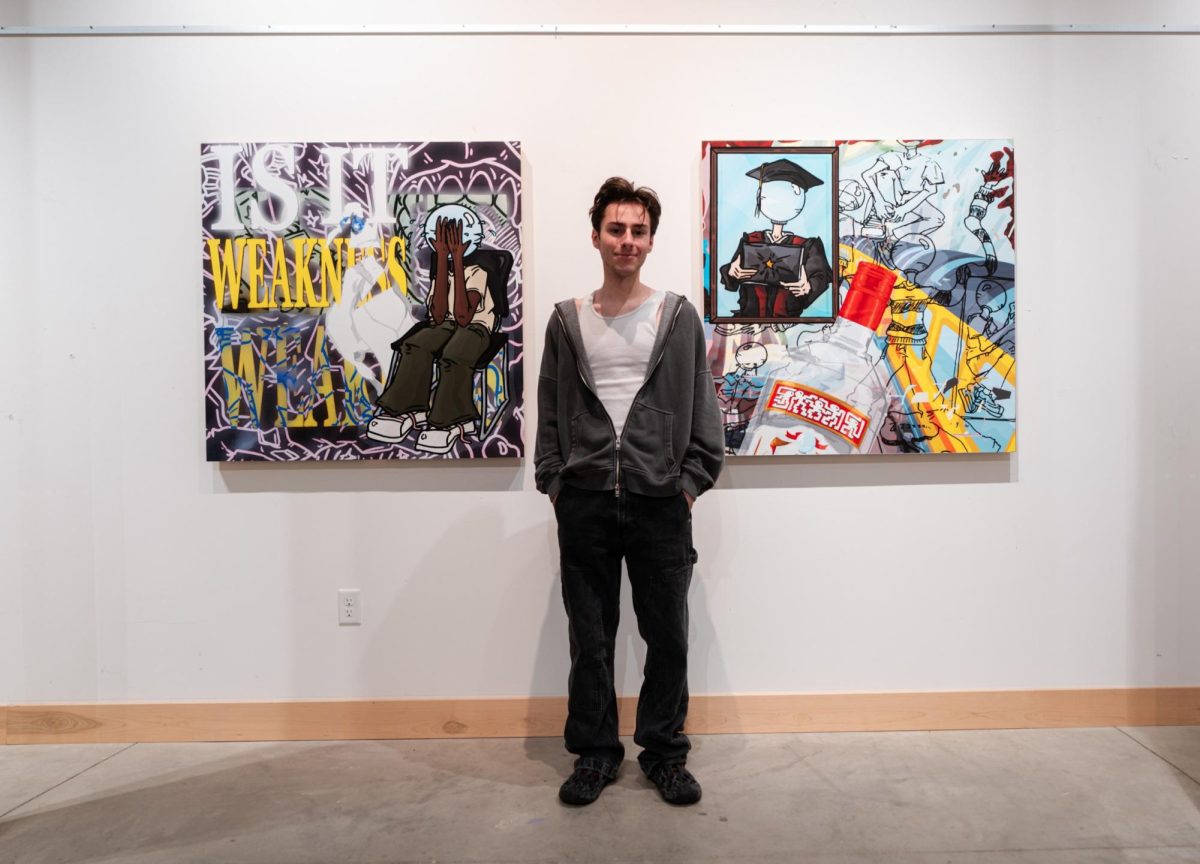Last year in the Rapson Hall courtyard, more than 100 people scrambled to finish game development projects. Sleep-deprived and freezing because the heating went out, 48 hours of nonstop work had each team jittery and on edge.
“People got so into their projects and the madness of finishing them on deadline that any time spent away or sleeping was dearly missed,” Lane Davis, a Minneapolis-based game developer, said.
This weekend, GLITCH hosts its second annual Gamecraft. Starting Friday night and ending Sunday evening at Rapson Hall, more than 200 designers, artists, developers and writers around the Midwest will come together to celebrate the art of game creation.
The weekend objective is for teams to create games from scratch and present them at the end. The event also features postmortems on all projects and play-throughs of the new games.
GLITCH is a nonprofit organization based in Minneapolis that promotes the exploration of digital games as a culture, career and creative practice. GLITCH provides support for those interested in game development through education, immersion, incubator and residency programs.
“We focus on helping students get experience with video games and the industry locally. … We want to create a community of video game enthusiasts,” Nicolaas VanMeerten, co-founder and director of interactive studies at GLITCH, said.
While 48 hours of endless game development may sound intimidating, VanMeerten said it’s more laidback than it sounds. There are a few requirements that teams are given, but for the most part, it’s open-ended.
“It’s supposed to feel more relaxing because you are working on a project that you think sounds interesting or learning new skills that you may not necessarily know,”
VanMeerten said.
Despite the encouragement to take naps and breaks, many game developers get too caught up in the excitement.
“It felt like everyone had this crazy energy going into it, and we were very focused,” Davis said. “The dedication to get something done in those 48 hours is incredible.”
Davis cited collaborative energy and challenge as the main reasons for his return this year. Working with other game enthusiasts, developing new skills and establishing connections are some of Gamecraft’s biggest perks.
While most participants have some knowledge about game development, a handful of complete beginners joined last year’s event. GLITCH hopes to attract a greater mixture of experience levels this year. For nonprogrammers, VanMeerten emphasizes that there is something for everyone to do, including design, sound and writing.
“You can make something bad, but it really doesn’t matter. No one is going to critique you for that,” VanMeerten said.
This year’s Gamecraft, VanMeerten said, is a new and improved version of the last one. In addition to accommodating twice as many people, GLITCH aims to improve the overall flow of activities. The organizers are looking to make team creation and pitching ideas easier, as well as adding more time for socializing.
Gamecraft is a part of Global Game Jam, the world’s largest game creation event. The first Global Game Jam was held in 2009, with 1,600 participants in 23 countries.
Since then, the event has continued to grow. Last year almost 29,000 participants attended in 78 countries, and 5,439 games were created over one weekend — 28 of them in Minneapolis.
Davis added that the thrill of Gamecraft and Global Game Jam is unlike any other. To game development enthusiasts, the event is top-tier fun.
“It’s like being at a music festival but much cheaper and you get something more out of it,” Davis said.
Gamecraft
Where Rapson Hall Courtyard, 89 Church St. SE, Minneapolis
When 7 p.m. Friday–5 p.m. Sunday
Cost $15 for students, $20 for public
















